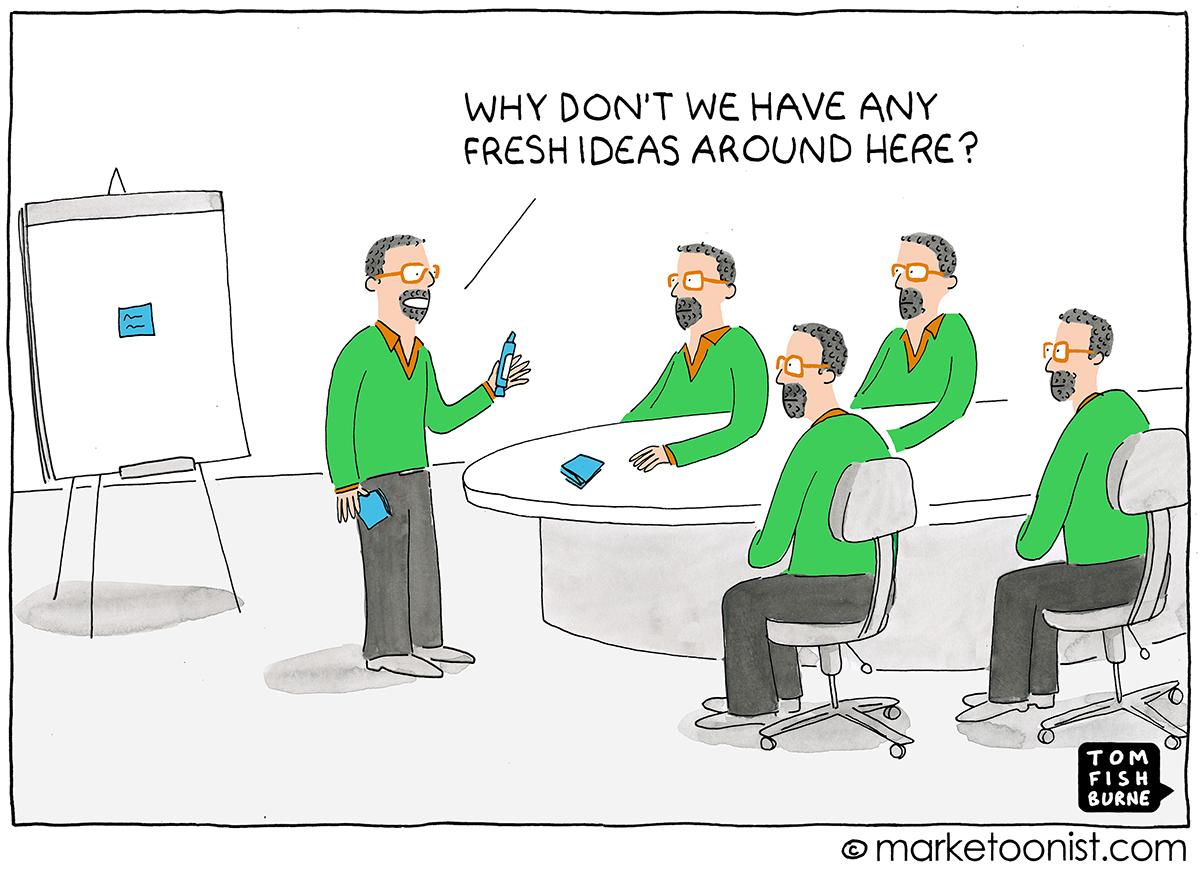
The term groupthink comes to mind when listening and thinking about public issues. Groupthink is the practice of thinking or making decisions as a group in a way that discourages creativity or individual responsibility. Groupthink can be a powerful constructive or destructive force. The groupthink that arises around preserving the comfort of the status quo harms organizations. College leaders are losing respect as they are caught up in groupthink. Politicians of every party echo common beliefs and ignore other opinions–groupthink. It is comfortable to stay within the boundaries of shared beliefs and uncomfortable to consider different points of view. But listening to the opinions of others (and being uncomfortable at times) is precisely what leaders need to do in making the best decisions for all groups.
When I was a manager in the NYS Education Department working on new curriculum and standards, we embraced many innovative ideas. We had one member of the team who we all referred to as the curmudgeon. He always seemed to be opposed to the group’s ideas. But listening to his opposing views helped us take more thoughtful actions rather than too radical a move. The opposite view helped us avoid staying in our comfort zone of groupthink and stop and reflect on all groups and how our choices might affect everyone rather than satisfy our ambitions.
Leaders need to avoid the comfort of groupthink and continually think about groups and their needs. I hope political leaders will cast aside groupthink, but that is beyond my expertise or influence. Education leadership is my experience and an area I can speak to. Influential school leaders thoughtfully consider student, staff, or community groups. There is always a shiny and loud groupthink opinion that drives school decisions and overwhelms diverse opinions. Consider recent issues such as school closures during the pandemic, child gender issues, or parent involvement. Leaders must avoid getting sucked into the vortex of following the crowd. When everyone around you thinks the same, you might be in a groupthink bubble.
I recall a paper I wrote on Overwhelming Cultural Inertia https://nyctecenter.org/images/files/Publications/Overwhelm-Cultural-Inertia.pdf and trying to reshape College and Career Readiness in schools. The overriding groupthink was that college readiness was the ideal pathway, and career readiness was a path for some. Actually, it is the opposite: career readiness is the perfect pathway, and college is a path for some.
Many groups fail to speak up against the majority group’s voice to correct their co-members’ mistakes. Mindlessly following group thoughts often amplifies those mistakes. The loudest voices of a few may establish the impression that the school is doing well and that public criticism is unjustified. Groupthink simply echoes this impression. Leaders, however, must avoid joining in the groupthink and seek to redirect by asking questions, such as, “How can this school do a better job with ALL students?” or “What can we learn from models where ALL students do better?”
Our politicians have harmed their political parties with groupthink and ignoring the needs of all party members. At the school level, administrators can show better leadership by supporting students in avoiding groupthink and thinking about groups by asking questions and making better decisions.
